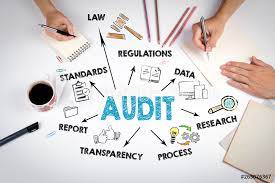Here are some Integrated Audit and Financial Support/Services that Ejadah offers:
- Audit Services: This includes both internal and external audits. Internal audits are conducted by the organization’s own internal audit department to assess internal controls and financial processes. External audits are performed by independent audit firms to provide an unbiased evaluation of financial statements and compliance with regulatory standards.
- Financial Reporting: Integrated audit and financial support involves the preparation and review of financial statements in accordance with Generally Accepted Accounting Principles (GAAP) or International Financial Reporting Standards (IFRS). It ensures that financial statements accurately represent the financial position, performance, and cash flows of the organization.
- Compliance: Ensuring compliance with relevant laws and regulations is a critical component. This may involve compliance with tax laws, industry-specific regulations, and international accounting standards.
- Risk Assessment: Integrated audits often include a thorough risk assessment to identify potential financial risks and vulnerabilities within an organization. Risk assessment helps in designing audit procedures and controls to mitigate these risks.
- Internal Controls: Evaluating and testing internal controls is a vital part of an integrated audit. Effective internal controls are essential to prevent fraud, errors, and misstatements in financial statements.
- Data Analytics: The use of data analytics tools and techniques is increasingly important in integrated audit and financial support. Analyzing large volumes of financial data can help identify trends, anomalies, and potential issues that may require further investigation.
- Technology Integration: Modern integrated audit processes often leverage technology, including auditing software and data analytics tools, to enhance efficiency and accuracy. This includes using tools for data extraction, automation of audit tests, and advanced data analysis.
- Continuous Monitoring: Integrated audit and financial support may involve continuous monitoring of financial transactions and controls to detect irregularities in real-time or near-real-time, reducing the risk of financial misstatements.
- Consulting Services: In addition to traditional audit services, organizations may seek financial advisory and consulting services as part of integrated support. This can include assistance with financial planning, budgeting, forecasting, and strategic financial decision-making.
- Documentation and Reporting: Comprehensive documentation of audit procedures, findings, and recommendations is a crucial aspect. Audit reports provide stakeholders with a clear understanding of the financial health and compliance status of the organization.
- Regulatory Compliance: Organizations must adhere to various regulatory requirements, such as Sarbanes-Oxley Act (SOX) compliance for publicly traded companies in the United States. Integrated audit and financial support helps ensure adherence to these regulations.
- Transparency and Accountability: An integrated approach promotes transparency in financial reporting and accountability for financial stewardship within the organization.
